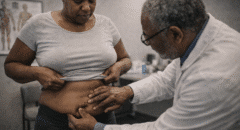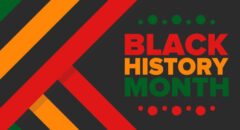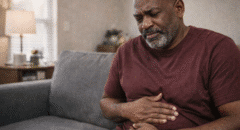KEY POINTS
- Only 27 percent of women screened for breast cancer, 38 percent of men and women being screened for colorectal cancer and 34 percent of men screened for prostate cancer reported the physician using shared decision making during screening discussions.
- Physicians were more likely to discuss the pros of cancer screening than the cons.
- Physicians were more likely to present screening as an option to men than to women.
A national survey of patients reveals that physicians don’t always fully discuss the risks and benefits of cancer screening, reports a new study in American Journal of Preventive Medicine.
The study examined data from more than 1100 people aged 50 and older who made decisions about whether to undergo screening for breast cancer, colorectal cancer, or prostate cancer in the previous 2 years. Participants were asked whether their physicians discussed the pros and cons of screening and of forgoing screening, and if they had been given a choice whether or not to be screened.
Shared decision making was reported by only 27 percent of women for breast cancer screening, 38 percent of both women and men for colorectal screening, and 34 percent for men for prostate screening. Survey participants reported that physicians were more likely to discuss the pros of a given screening procedure (51 percent to 67 percent, depending on the type of screening) than the cons (7 percent to 14 percent). Furthermore, most physicians offered opinions that primarily favored screening.
Physicians were also reported to be more likely to ask men (71 percent for colorectal cancer and 70 percent for prostate cancer) whether they wanted testing than they were to ask women (43 percent for breast cancer and 57 percent for colorectal cancer).
Ideally, in shared decision making, a physician informs a patient that a decision is needed, invites them to weigh in on the decision, and provides him or her with information about the risks and benefits of both testing/treatment or doing nothing. Ideally, the physician also helps the patient make a decision that considers the patient’s values and preferences about their health and health care.
Overall, 77 percent of patients decided to participate in the three cancer screenings studied, ranging from 69 percent of women for colorectal cancer to 93 percent of men for prostate cancer. The majority said they were confident about their decision; however, those who reported their physicians were primarily responsible for the decision were less confident than those making a shared decision.
The authors also compared shared decision making discussions with women in their 40s versus women over 50 because of recent controversy over the appropriateness of breast cancer screening for younger women and were surprised by the result.
“We were expecting that decision making quality would be better for younger women and it wasn’t,” said Richard M. Hoffman, MD, MPH, professor of internal medicine at the University of New Mexico School of Medicine in Albuquerque and lead author on the study. “Overall, we didn’t see that much shared decision making.”
“The methodology [the authors] used and their interpretation of data is correct,” said Richard Wender, MD, chief cancer control officer with the American Cancer Society in Atlanta and coauthor of the guidelines that urge shared decision making for prostate cancer screening. However, he said that extrapolating from the results should be done cautiously. “Medicine will have to grapple with what kinds of physician advice should be moved into shared decision making as opposed to traditional recommendations to have it done,” he said.
“Shared decision making is difficult to do,” Wender added. “Tools and guidance about how to do it are not as easily available as they should be.”
Visit the BlackDoctor.org Cancer center for more articles.
This articles was originally published by Health Behavior News Service, part of the Center for Advancing Health.









